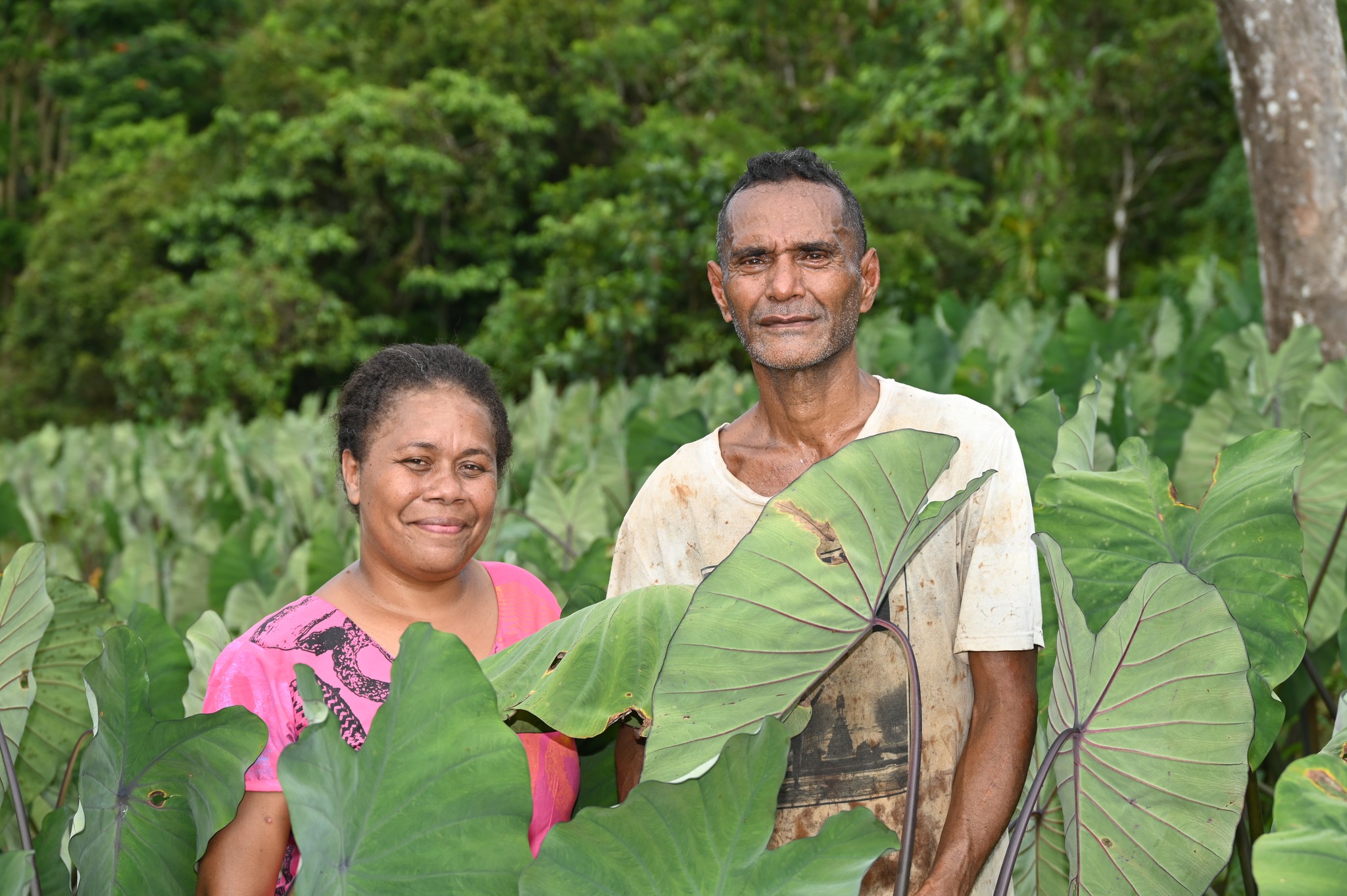FARMING - A REWARDING VENTURE

For decades, Laisenia Bure navigated a structured work life—earning, learning, and growing through various roles in government and agriculture. But deep down, his vision was always clear: one day, he would return to the land, and the land would provide for him.
Originally from Taviya in Ovalau but born and raised in Nasukamai village in Ra, Laisenia has lived in Nabua Settlement in Nubumakita, also in Ra, for over 20 years.
Now, standing on his thriving farm in Nabua Settlement, Laisenia is proof that transitioning into full-time farming after a career can be more than a fallback—it can be a deeply fulfilling profession that secures income, strengthens family bonds, and turns knowledge into lasting sustainability.
After studying and further education in New Zealand through a scholarship, Laisenia gained insights into agriculture from different perspectives. Through working experience in the agriculture sector and studying abroad, he always knew before old age crept in that he wanted to use his talent where it mattered most- on the land.
"I always believed farming wasn’t just a backup plan—it was the future. I didn’t want to wait until I was too old to use my hands on the land," Laisenia shares.
Since settling in 2002, he put that dream into action. His approach wasn’t just about planting crops; it was about creating a sustainable system. He cultivated fruit trees—coconut, avocado, mangosteen, rambutan, and more—that only needed to be planted once, providing a lifetime of harvests.
In addition, he grew pineapples as seasonal fruit for his family’s use and expanded into export-grade uro-ni-vonu taro farming, which now earns $10,000 annually.
“I also plant various taro varieties, including Maleka Dina and Jabeni, which are sold locally. The main market destinations are Nadi and Lautoka, particularly during Easter and Christmas,” he said.
But farming, like any business, requires investment. With the help of the Ministry of Agriculture and Waterways, he secured a digger for land preparation, covering one-third of the cost.
In 2024, he invested $900 to clear two acres, planted dalo, and now, that investment is about to bear fruit—literally as the farm is ready for harvest.
“Seeing the farm thrive makes every early morning and every struggle worth it. We put in the work, and now we’re seeing the results," Laisenia says proudly.
Laisenia’s journey isn’t a solo effort. His children actively contribute to the farm, not just as extra hands but as direct beneficiaries of its success.
The money earned from farming provides for their needs, ensuring their education, opportunities, and daily expenses are comfortably met, all thanks to the land that sustains them.
"My children help me every step of the way. They know that whatever they need, the farm provides. Farming doesn’t just feed us—it funds us," he said.
Instead of seeing farming as tough labor, his children see it as a source of independence and financial stability. They understand firsthand that the farm isn’t just their father’s vision—it’s theirs too.
But his farm doesn’t just serve his household—it serves the surrounding community, too. When neighboring villages need financial help for traditional functions, they often turn to his farm for support.
Whether it’s a wedding, funeral, or cultural gathering, Laisenia's farm is a reliable source of aid, reflecting how farming is not just personal wealth—it’s community wealth.
"People come to us when they need money for a function, and we always try to help by giving them work on the farm. Farming is about more than profits—it’s about supporting those around us," he shares.
“In addition, we assist farmers in rural areas by supplying taro planting materials and exchange taro suckers for plantains with the correctional facility, helping inmates reintegrate by providing them planting materials for their settlements upon release.”
Like any farmer, Laisenia faces challenges, but his resourceful mindset ensures that obstacles are met with solutions. One of his biggest battles has been wild pigs destroying his dalo farm. Rather than relying on manual monitoring, he installed solar-powered floodlights to keep the pigs away, demonstrating how farming today requires both traditional knowledge and modern innovation.
"We had to think of something. The pigs would come at night and ruin the crops, but now, with solar floodlights, they don’t even come close," he shares.
"For plans, with the farm far from the main road, transporting crops to the market remains a challenge, and having a truck will be a game-changer. Securing financing has been difficult, but I am determined to make it happen—this investment will drive the farm’s future success."
“I am married with six children. One of the greatest blessings I cherish is that we never struggle for food or income, as the land provides everything we need. We have a large rourou (taro leaf) garden near the house, which supplies the local market.”
Additionally, his commitment to soil health is evident in his poultry manure shed, where he stores 200 bags of manure to fertilize his crops naturally. Through government subsidies, this initiative has further boosted his efficiency in creating a self-sustaining farm ecosystem.
For many, farming is seen as a fallback option—something to do if formal employment isn’t available. But for Laisenia, it’s a career as respectable and rewarding as any other.
"Farming is not just something you do when there’s nothing else—it’s a profession. It requires skill, vision, and persistence. When you do it right, you will never go hungry, and you will never struggle," he smiled.
Today, he stands proud of his journey—no longer dependent on an employer, but fully self-sufficient, financially stable, and rooted in the land that has given back everything he invested into it.
ENDS
